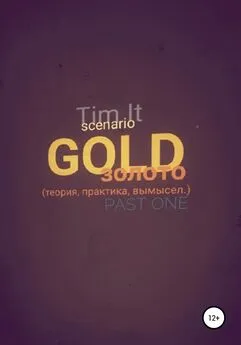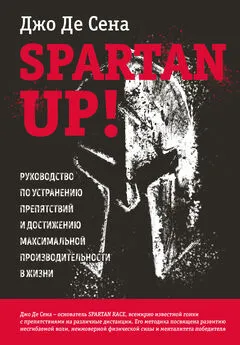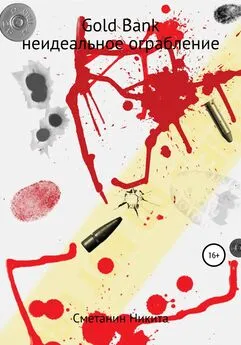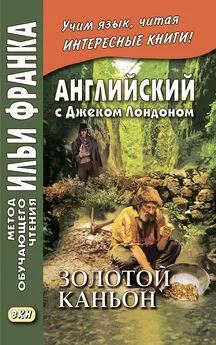Clive Cussler - Spartan Gold
- Название:Spartan Gold
- Автор:
- Жанр:
- Издательство:неизвестно
- Год:неизвестен
- ISBN:нет данных
- Рейтинг:
- Избранное:Добавить в избранное
-
Отзывы:
-
Ваша оценка:
Clive Cussler - Spartan Gold краткое содержание
The debut of a brand-new, action-packed series from the #1 New York Times bestselling master of 'pure entertainment'.
Thousands of years ago, the Persian king Xerxes the Great was said to have raided the Treasury at Delphi, carrying away two solid gold pillars as tribute. In 1800, Napoleon Bonaparte and his army stumble across the pillars in the Pennine Alps. Unable to transport them Napoleon creates a map on the labels of twelve bottles of rare wine. And when Napoleon dies, the bottles disappear.
Treasure hunters Sam and Remi Fargo are exploring the Great Pocomoke Swamp in Delaware when they are shocked to discover a World War II German u-boat. Inside, they find a bottle taken from Napoleon's 'lost cellar.' Fascinated, the Fargos set out to find the rest of the collection. But another connoisseur of sorts has been looking for the bottle they've just found. He is Hadeon Bondaruk - a half- Russian, half-Persian millionaire. He claims to be a descendant of King Xerxes himself.
And he wants his treasure back.
Spartan Gold - читать онлайн бесплатно полную версию (весь текст целиком)
Интервал:
Закладка:
Bent at the waist, Sam probed underwater with his fingers, sliding along the wood until he touched something metal . . . something with a U-shaped hasp and a square body.
A padlock, he thought, visions of an ancient barnacle-encrusted hasp swirling through his mind. “Got something,” he announced.
Remi turned toward him, muddy arms hanging by her sides.
“Hah!” Sam pulled it from the water. As the mud slid off and plopped back into the water, he saw the glint of rust and silver, then some raised letters. . . .
M-A-S-T-E-R L-O-C-K.
“Well?” Remi said, her voice tinged with skepticism. She was used to Sam’s sometimes premature excitement.
“I’ve found, my dear, a vintage Master padlock, circa 1970,” he replied, then hefted from the water the piece of wood it had been attached to. “Along with what looks like an old gatepost.” He dropped it back into the water and then straightened up with a groan.
Remi smiled at him. “My intrepid treasure hunter. Well, it’s more than I’ve found.”
Sam looked at his watch, a Timex Expedition he wore only on expeditions. “Six o’clock,” he said. “Shall we call it a day?”
Remi ran her cupped hand down her opposite forearm, shedding a layer of goop, and gave him a broad smile. “Thought you’d never ask.”

They gathered their packs and hiked the half mile back to their skiff, which they’d tied to a grounded cypress stump. Sam cast off and pushed the boat into deeper water, wading up to his waist, while Remi yanked the engine’s starter cord. The motor growled to life and Sam climbed in.
She turned the bow into the channel and throttled up. The nearest town and their base of operations was Snow Hill, three miles up the Pocomoke River. The B&B they’d chosen had a surprisingly decent wine cellar and a crab bisque that had put Remi in culinary heaven at the previous night’s supper.
They motored along in silence, lulled by the soft gurgle of the motor and gazing at the overhanging canopy. Suddenly Sam turned in his seat, looking to the right.
“Remi, slow down.”
She throttled back. “What is it?”
He grabbed a pair of binoculars from his pack and raised them to his eyes. Fifty yards away on the bank there was a gap in the foliage—another hidden inlet among the dozens they’d already seen. The entrance was partially blocked by a tangle of branches piled up by the storm.
“What do you see?” she asked.
“Something . . . I don’t know,” he muttered. “I thought I saw a line in the foliage . . . a curve or something. Didn’t look natural. Can you get me over there?”
She turned the rudder and aimed the skiff at the mouth of the inlet. “Sam, are you hallucinating? Did you drink enough water today?”
He nodded, his attention fixed on the inlet. “More than enough.”
With a soft crunch, the skiff’s nose bumped into the mound of branches. The inlet was wider than it looked, nearly fifty feet across. Sam looped the bow line around one of the larger limbs, then slipped his legs over the gunwale and rolled into the water.
“Sam, what’re you doing?”
“I’ll be right back. Stay here.”
“Like hell.”
Before she could say more, Sam took a breath, ducked underwater, and disappeared. Twenty seconds later Remi heard a splash on the other side of the branches, followed by Sam sucking in a lungful of air.
She called, “Sam, are you—”
“I’m fine. Be back in a minute.”
One minute turned into two, then three. Finally Sam called through the foliage, “Remi, can you join me, please?”
She could hear the mischievous lilt in his voice, and thought, Oh, boy. She loved her husband’s adventurous impulses, but she’d already started imagining how good a hot shower was going to feel. “What is it?” she asked.
“I need you to come here.”
“Sam, I just now started to dry off. Can’t you—”
“No, you’re going to want to see this. Trust me.”
Remi sighed, then slipped over the side into the water. Ten seconds later she was treading water beside him. The trees on either side of the inlet formed an almost solid canopy over the water, enclosing them in a tunnel of green. Here and there sunlight stippled the algae-filmed surface.
“Hi, nice of you to come,” he said with a grin and a peck on her cheek.
“Okay, smarty-pants, what are we—”
He rapped his knuckles against the misshapen log he had his arm draped over, but instead of a dull thud she heard a metallic gong.
“What is that?”
“Not sure yet. Part of it—can’t be sure what part until I get down there and get inside.”
“Part of what? Get inside what?”
“This way, come on.”
Taking her by the hand, Sam sidestroked deeper into the inlet and around a corner, where the course narrowed to twenty feet. He stopped and pointed to a vine-covered cypress trunk near the bank. “There. You see it?”
She squinted, tilted her head left, then right. “No. What am I looking for?”
“That branch sticking out of the water, the one that ends in a T shape. . . .”
“Okay, I see it.”
“Look harder. Squint. It helps.”
She did, narrowing her eyes until slowly what she was seeing registered on her brain. She gasped. “Good Lord, is that a . . . It can’t be.”
Grinning from ear to ear, Sam nodded. “Yep. It is. That, my dear, is a submarine’s periscope.”
CHAPTER 2
SEVASTOPOL, UKRAINE
Hadeon Bondaruk stood at the floor-to-ceiling windows of his study and stared out at the Black Sea. His study was dark, lit only by dimmed ceiling lights that cast soft pools into the corners of the room. Night had fallen over the Crimean Peninsula, but to the west, over the Romanian and Bulgarian coasts, backlit by the last remnants of the setting sun, he could see a line of storm clouds moving north over the water. Every few seconds the clouds would pulse from within, shooting veins of lightning across the horizon. It would be here within the hour, and God help those foolish enough to be caught afloat in the midst of a Black Sea storm.
Or, Bondaruk thought, God not help them. No matter. Storms and disease and yes, even war, were nature’s way of culling the herd. He had little patience for people who didn’t have the sense or strength to protect themselves against the violence of life. It was a lesson he’d learned as a boy, and one that he’d never forgotten.
Bondaruk had been born in 1960 in a village south of Ashgabat, Turkmenistan, high in the Kopet Dag Mountains. His mother and father and their parents before them had been farmers and shepherds living in that gray geographic area between Iran and what was then the Soviet Union, and like all natives of the Kopet Dag they were tough, self-reliant, and fiercely independent, claiming neither country as their own. However, the Cold War had other plans for Bondaruk and his family.
With the Iranian Revolution of 1979 and the deposition of the Shah, the Soviet Union began to pour more troops into the border area north of Iran, and Bondaruk, then nineteen, saw his village’s independence stripped away as Red Army bases and antiaircraft missile sites began cropping up in their once peaceful mountain home.
The Soviet troops treated the Kopet Dag natives like backward savages, moving through villages like a scourge, taking food and women, shooting livestock for sport, and rounding up “Iranian revolutionary elements” for summary execution. Never mind that Bondaruk and his people knew little of the outside world and world politics. Their Muslim religion and proximity to Iran made them suspect.
A year later a pair of tanks appeared on the outskirts of the village, along with two companies of Red Army soldiers. A squad of soldiers had been ambushed nearby the night before, the commander told Bondaruk and the villagers. Eight men, their throats slit and their clothes, weapons, and personal belongings stripped from them. The village elders had five minutes to produce those responsible, lest the entire community be held responsible.
Bondaruk had heard stories about Turkmen resistance fighters in the countryside being aided by Iranian commandos but to his knowledge none of the villagers were involved. Unable to produce the guilty parties, the village chieftain pleaded with the Soviet commander for mercy and was shot for his trouble. Over the next hour the tanks rained shells down on the village until it was in ruins and burning. In the commotion, Bondaruk was separated from his family and he and a handful of boys and men retreated higher into the mountains, far enough away to be safe from the soldiers, but close enough that they could watch through the night as their home was razed to the ground. The next day they returned to the village and began looking for survivors. More dead than alive were found, including Bondaruk’s family, who had taken shelter in the mosque only to have it collapse and crush them alive.
Something inside him changed, as though God had pulled a dark curtain on his old life. He gathered up the strongest and most eager villagers, men and women alike, and they all took to the mountains as partisans.
Within six months Bondaruk had risen not only to a position of leadership among his fighters, but also to that of a legend among the rural Turkmen people. Bondaruk’s fighters would strike in the night, ambushing Soviet patrols and convoys, then disappear back into the Kopet Dag like ghosts. Within a year of his village’s destruction, Bondaruk had a bounty on his head. He’d come to the attention of the Soviet leadership in Moscow, which was now embroiled in not only a tense standoff with Iran and a full-blown war in Afghanistan but also a guerrilla conflict in Turkmenistan.
Shortly after his twenty-first birthday Bondaruk received word that Iranian intelligence operatives had put out the word that his Kopet Dag fighters had an ally in Tehran, if only he would sit down and listen, which he did in a small café outside Ashgabat.
The man Bondaruk met turned out to be a colonel in the elite Iranian paramilitary organization known as the Pasdaran, or the Guardians of the Revolution. The colonel offered Bondaruk and his fighters weapons, ammunition, training, and essential supplies for his war against the Soviets. Wary, Bondaruk had probed for a loophole in the deal—that one condition that would simply change the heel on their necks from that of the Soviets to the Iranians. There was no condition, he was assured. We are of common ancestry and faith and cause. What more of a bond did they need? Bondaruk accepted the offer and over the next five years Bondaruk and his fighters, under the guidance of the Iranian colonel, slowly wore down the Soviet occupiers.
As satisfying as that was for Bondaruk, it was his relationship with the colonel that had the most effect on him. The colonel, it seemed, had been a teacher of Persian history before he’d been called to serve the revolution. The Persian Empire, he explained, stretched back nearly three thousand years and at its height had encompassed the Caspian and Black Sea basins, Greece, North Africa, and much of the Middle East. In fact, Bondaruk was told, Xerxes I, Xerxes the Great, who had invaded Greece and crushed the Spartans at the Battle of Thermopylae, was born in the very same mountains Bondaruk called home and was said to have fathered dozens of children in the Kopet Dag.
This was a thought that was never far from Bondaruk’s mind as he and his guerrillas continued to harass the Soviets until finally, in 1990, over a decade after they’d entered the Kopet Dag, the Red Army withdrew from the border. Shortly after that the Soviet Union collapsed.
Читать дальшеИнтервал:
Закладка:

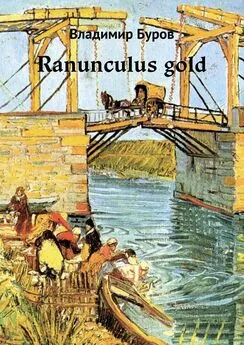
![Джо Сена+ - Spartan up! Руководство по устранению препятствий и достижению максимальной производительности в жизни [litres]](/books/1059232/dzho-sena-spartan-up-rukovodstvo-po-ustraneniyu-pr.webp)
